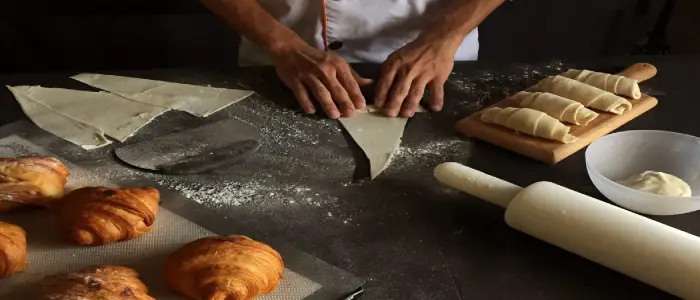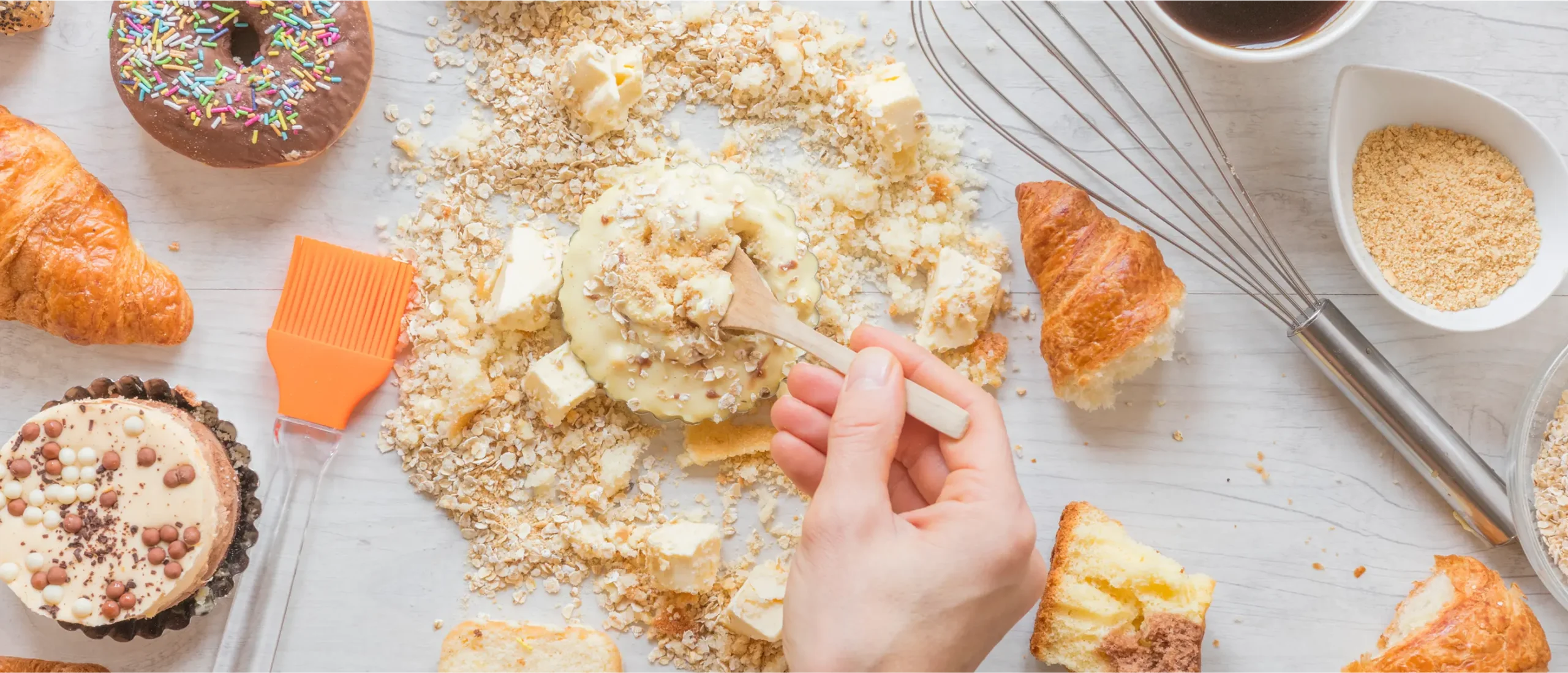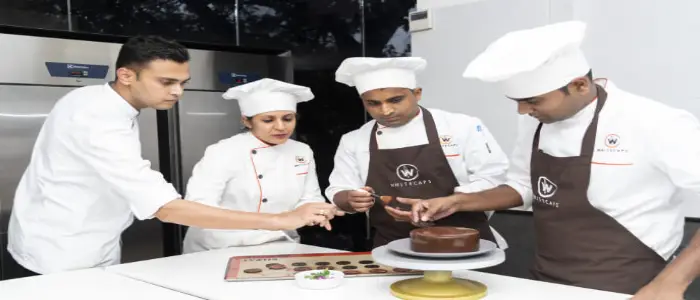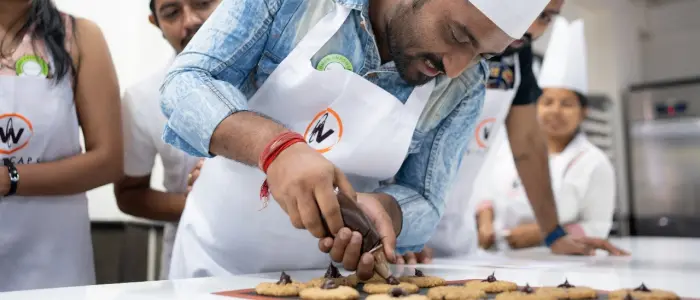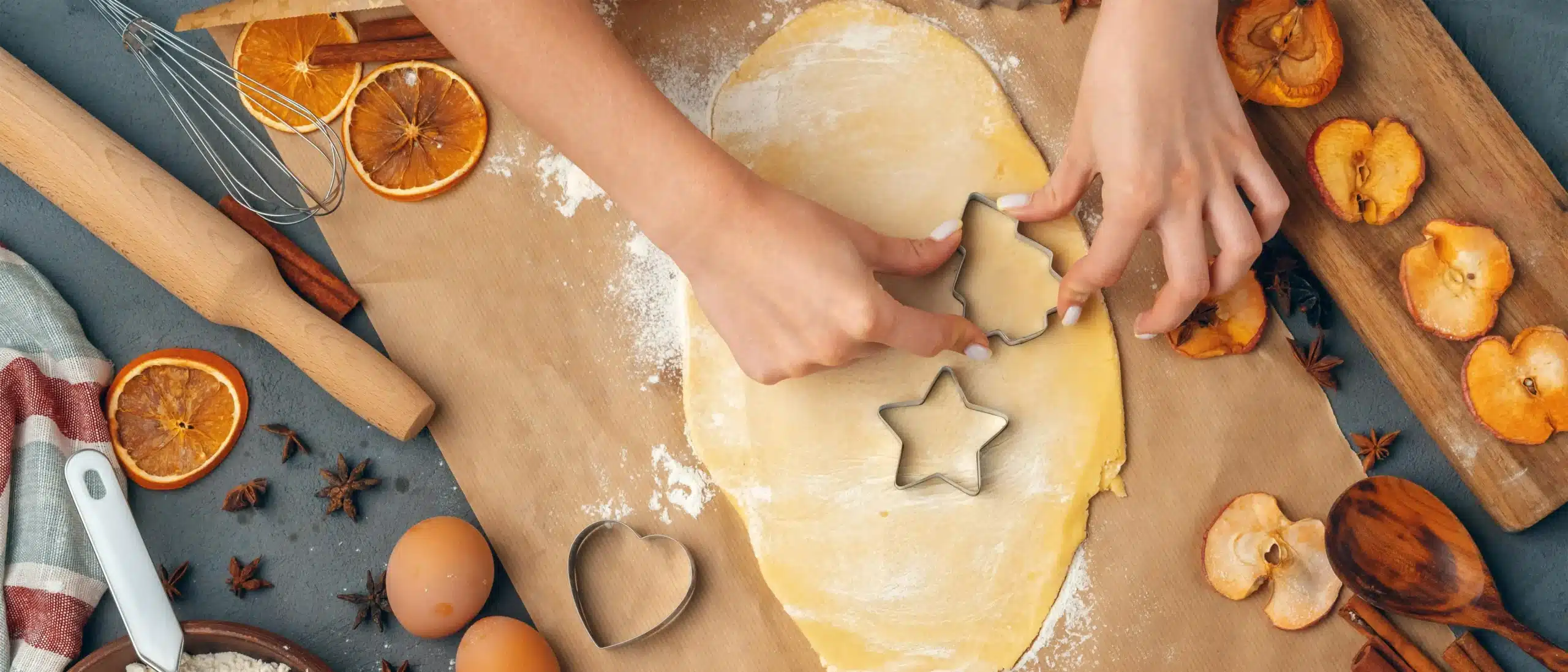Baking and pastry are not just cooking but a blend of creativity, culture, and science in the kitchen. Baking has influenced culinary customs throughout the world, whether in the form of a simple loaf of bread or an elaborate multi-layered dessert. In today’s world, the importance of baking and pastry has grown even further as chefs and aspiring professionals explore trends such as vegan croissants, gluten-free shortcrust, health-conscious desserts, and sustainable baking practices.
As students and professionals begin their careers in the baking and pastry arts, it is essential to understand why these specialities are important not only as a career but also in the overall contribution they make to the world of food.
What Are Baking and Pastry Arts?
The baking and pastry arts are a broad field that entails the art of making bread, cakes, pastries, and desserts. Unlike cooking, which allows for improvisation, baking is both an art and a science, requiring measured proportions, precise temperatures, and controlled timing.
Meanwhile, pastry arts introduce the element of artistry as well- basic ingredients are turned into delicious art. This contrast of gastronomic accuracy and imaginative design is what makes this sphere so important in contemporary gastronomy. If you’re considering stepping into this field, it helps to understand the difference between specialised baking vs pastry courses and which one aligns better with your goals.
Why Are Baking & Pastry Important in the Culinary World?
The importance of baking and pastry in the culinary world is that they are the basis of cuisines, stimulate creativity, and are a cultural heritage. Pastry chefs and bakers are equally important in a professional kitchen, and in many cases are the ones who define a dining experience.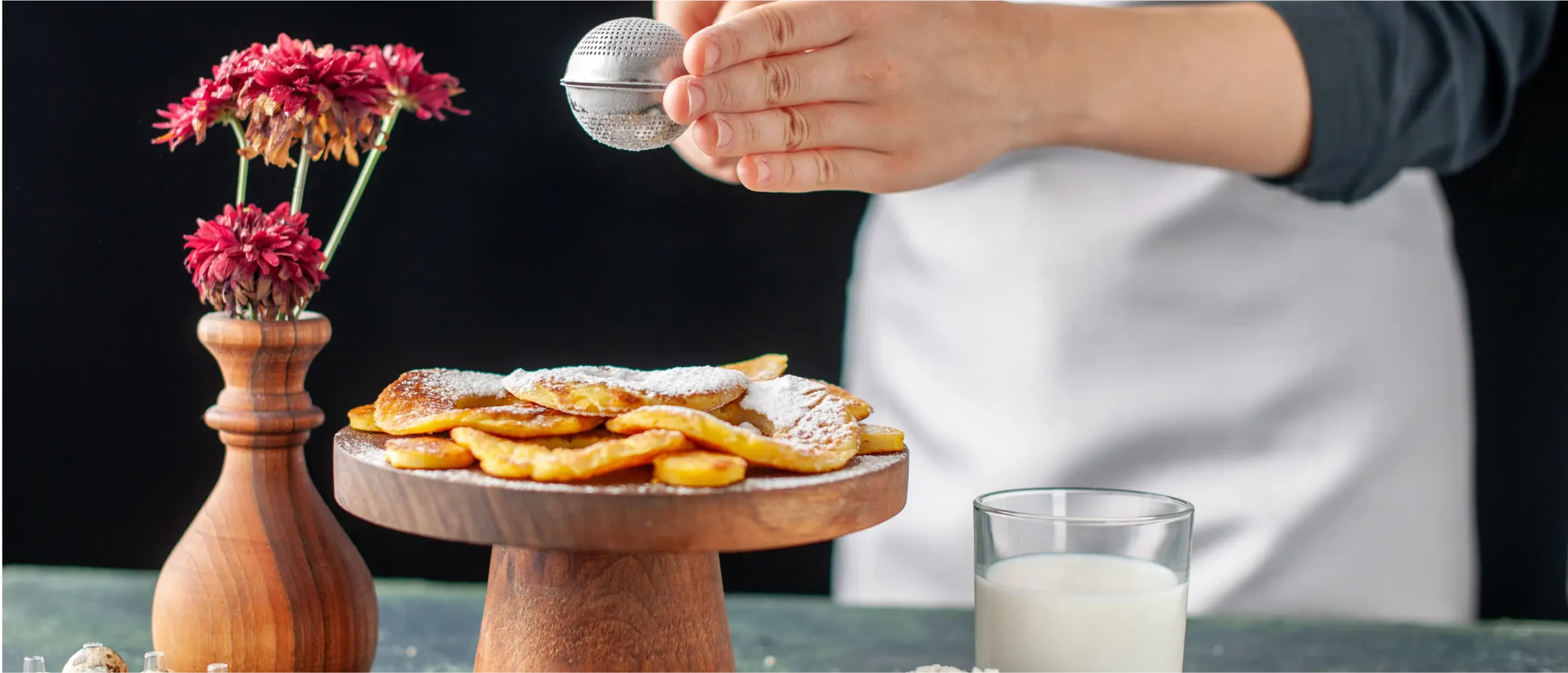
- Consistency: Baking makes results repeatable, a feature of professionalism.
- Creativity: Pastry chefs are creative in terms of flavours, textures, and designs.
- Cultural representation: Pastries are cultural, from French viennoiserie to Indian mithai adaptations.
For learners, a structured course such as an advanced diploma in baking program can help develop both the creative and scientific side of pastry.
Foundation of Culinary History
The history of baking is thousands of years old, and it dates back to the time of the Egyptians, who learned about natural fermentation. Baking has, over the years, become a central part of the diet of all civilisations, either in the form of bread, cakes, or pastries.
Pastry is a pillar of the culinary industry today, and it affects casual dining and fine dining experiences. The bakery industry has become one of the most rapidly developing segments of the food industry, even in India, which demonstrates the importance of the bakery industry in the formation of modern food trends. For those who wish to explore this craft in depth, structured eggless baking programmes or enrolling at the ideal stage to enrol in a bakery program provide a strong foundation.
Culinary Precision and Science
Baking and pastry are unlike other culinary disciplines, and they involve a thorough knowledge of food science. The proportion of flour to fat, the percentage of protein in flour, the duration of fermentation, and even the temperature in the kitchen have a direct effect on the result.
- During bread baking, the texture and flavour are determined by yeast fermentation.
- Lamination in pastry produces hundreds of flaky layers.
- Sugar crystallisation influences shine and texture in confectionery.
Not only does this scientific accuracy give shape to baking, but it also instils discipline, patience, and detail-oriented skills. Many of these are among the essential skills learned in formal training.
Art Meets Edible Design
More than accuracy, pastry is art.
Did you know? A study commissioned by Facebook revealed that food and drink are among the most popular interests among Instagram users (38 per cent) compared to travel (27 per cent) and music (31 per cent).
A pastry chef is an artisan and an artist with cakes, tarts, and plated desserts as the canvas. This is the reason why baking and pastry are so prestigious; it is a mix between technical skills and the art of edible design.
- Cake decorating is a trend in aesthetics (minimalist, floral, or sculptural).
- The craft of chocolate work and sugar artistry is precise and designed.
- Modern pastries explore colour, texture, and combinations.
With the visualisation of food, Instagram-inspired trends encourage chefs to experiment with daring food art. For aspiring professionals, learning advanced techniques such as cake engineering can open up new possibilities to blend design and innovation in pastry.
Boosts Creativity & Innovation
The fact that there is unlimited potential to innovate in baking and pastry is one of the reasons why it is important. Pastry chefs are inventive with new ingredients, global influences and dietary accommodations. Recent developments are:
- Baking without gluten and vegan: almond flour shortcrust, puff pastry made with oats.
- Low-calorie desserts: low-sugar cakes, protein-rich muffins.
- Flavour combinations: matcha croissants, saffron cheesecakes, chai-spiced cookies.
This flexibility enables the pastry and baking arts to remain current and forward-looking. If you’re inspired to explore these opportunities further, connecting with mentors and understanding the future paths in the pastry industry can be the first step toward shaping your baking journey.
Building Cultural Bridges Through Pastry Art
Pastries transcend borders. Croissants, once considered the most French of pastries, are now produced and enjoyed worldwide. Similarly, classic Indian desserts such as kaju katli and gulab jamun have been reinvented using pastry skills, a fusion of international and Indian cuisines.
Baking and pastry help create cultural bridges and are therefore a significant part of hospitality and international cuisines.
Tech in Baking
Technology also influences modern pastry arts. Bakers and chefs now use:
- Custom chocolate moulds with 3D food printing.
- Smart ovens that have temperature control precision.
- Facilitated by AI, recipe development to develop new flavour combinations.
Technology enables the baking industry to provide efficiency and still have an element of art.
Fusion of Tradition & Innovation
Today, pastry chefs are usually on a thin line between tradition and innovation. Examples include:
- Traditional croissants with matcha or charcoal.
- French patisserie (rasmalai cheesecake) and traditional mithai.
- Local farm-to-table pastries.
This fusion of tradition and innovation makes baking an exciting part of the culinary arts.
Health-Conscious & Functional Baking
The worldwide gluten-free bakery industry is expected to rise to USD 7.59 billion by 2027 with a CAGR of 7.2 % between 2020 and 2027, which is a manifestation of the fact that the health-conscious baking trend is transforming the industry at a fast rate.
The world trend towards wellness has impacted baking. Bakers have come up with indulgent and health-conscious products. Functional baking consists of:
- Vegan and gluten-free pastries.
- High-fibre breads.
- Protein-enriched muffins.
- Low-sugar sweets.
These developments cater to the taste and nutrition-conscious consumers of today.
Sustainability in Pastry & Baking
Sustainability is not an option in the culinary world anymore, but a necessity. In baking and pastry, this is:
- Minimising food waste (e.g., upcycling bread into puddings).
- Consuming butter and dairy substitutes of plant origin.
- Local and seasonal ingredients.
- Eco-friendly packaging.
By learning sustainability, students can remain relevant in a conscious marketplace as they build careers in baking and pastry.
Conclusion
The importance of baking and pastry in the culinary world cannot be overstated. They are the ideal combination of science and art, tradition and innovation, culture and modernity. Whether you want to create the best croissant or veganize a dessert, baking and pastry arts train professionals to work in the food sector and have exciting and global careers.
Those who wish to take this seriously often begin their journey by exploring the right baking institute in Bangalore that can provide global exposure and structured learning. Our school, Whitecaps International School of Pastry, combines all of these aspects, educating students on the precision of baking, the artistry of pastry, and the flexibility needed to succeed in the contemporary culinary field. If you’re ready to begin your journey, you can get in touch with our team.
FAQs
Q1: What is baking and pastry?
Baking and pastry involve creating breads, cakes, desserts, and pastries using precise ratios, techniques, and creativity.
Q2: Why are baking and pastry important in culinary arts?
They form the foundation of global cuisines, combining science, creativity, and culture while shaping the dining experience.
Q3: What are the types of baking and pastry?
The main categories include bread, cakes, laminated doughs, choux, tarts, and modern fusion desserts.
Q4: What career opportunities exist in baking and pastry?
Graduates can pursue careers as pastry chefs, artisan bakers, chocolatiers, food stylists, or even entrepreneurs in the bakery industry.
Q5: How is the bakery industry evolving today?
The industry is shifting toward health-conscious, sustainable, and tech-driven practices, making it one of the most dynamic culinary fields.

